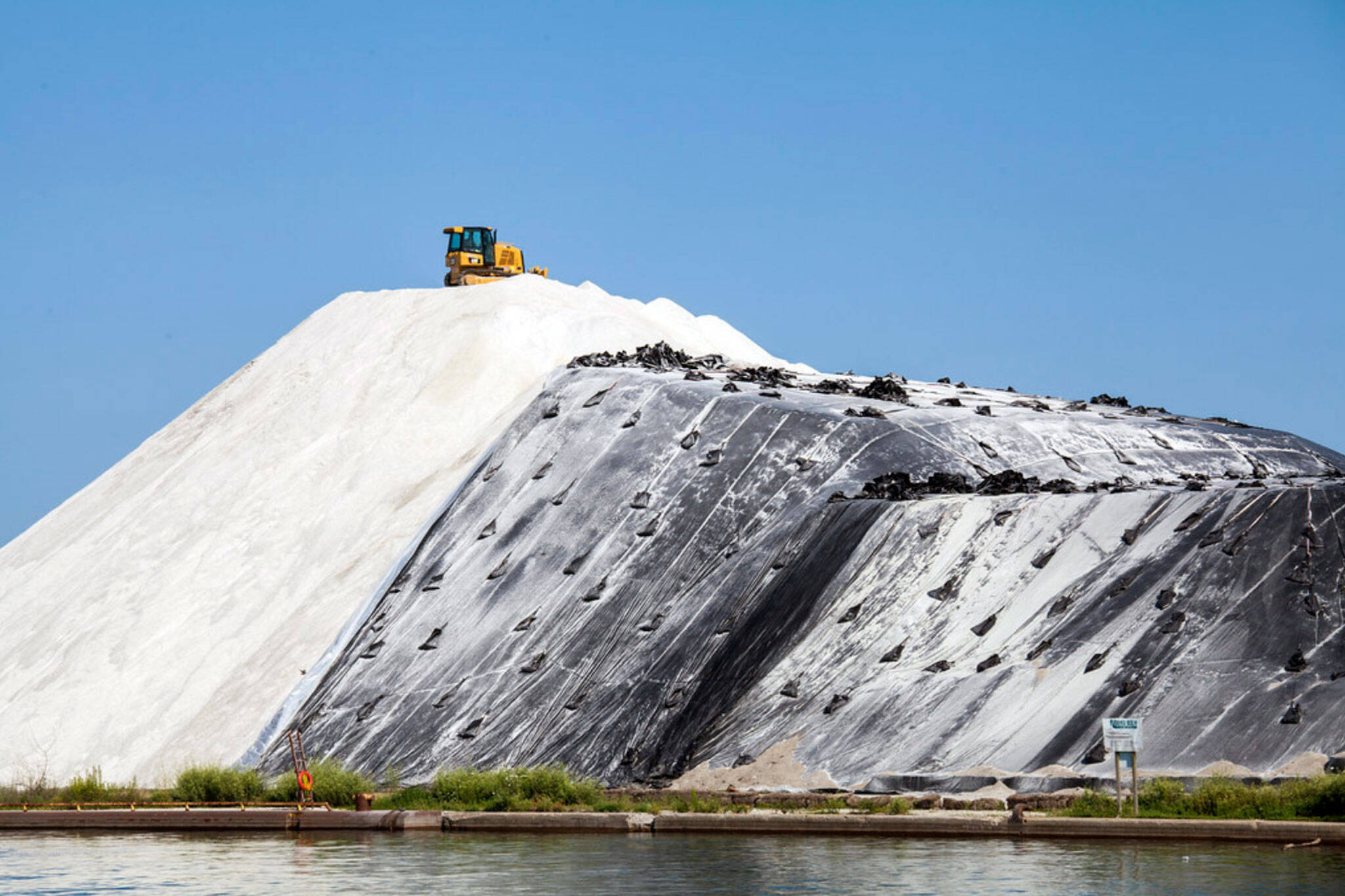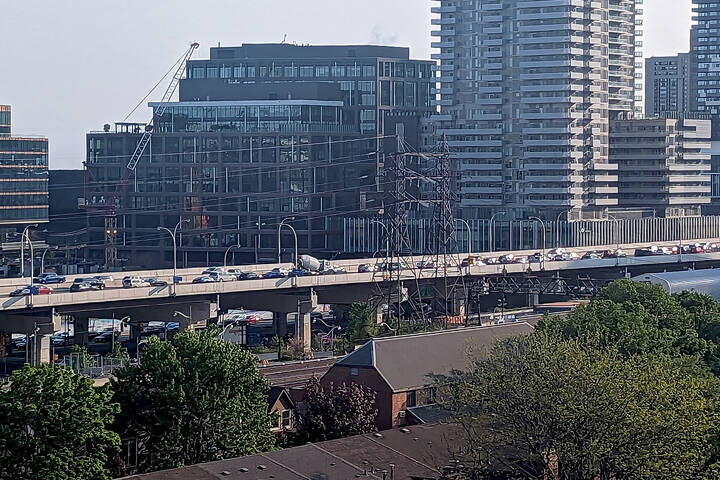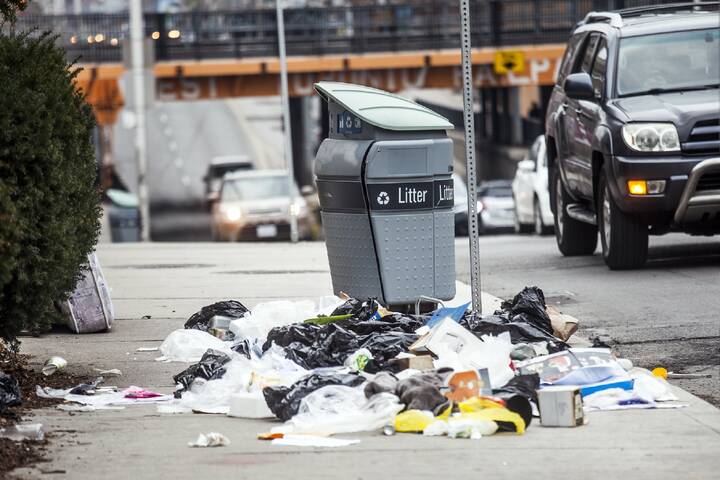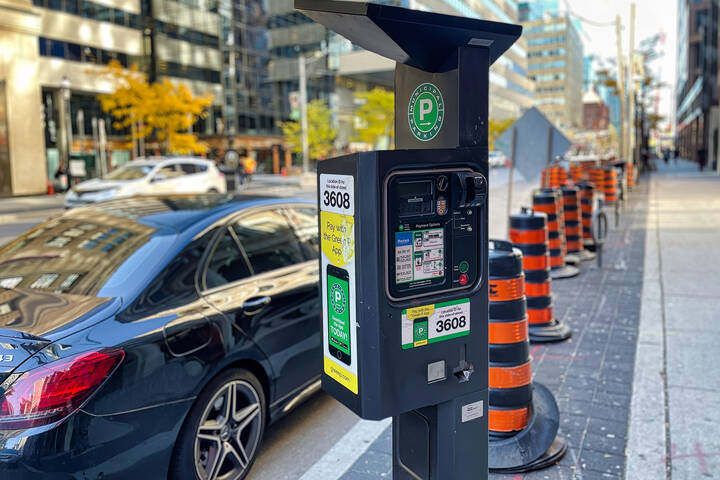
This is what all those salt mountains in Toronto are for
If you've passed through the city's industrial Port Lands area, you've likely seen the looming heaps of white salt sitting on the narrow strip that juts out into Toronto's inner harbour.
They're hard to miss: too large for any kind of salt dome, these whale-sized piles are usually half-covered with black tarps, creating a striking contrast for people to ogle at on their way to Cabana or Cherry Beach.
It's Toronto's largest holding ground for bulk road salt storage, where tonnes of halite are held throughout the year just south of the Ship Channel.
Even in this highly commercial landscape—also home to the City's only industrial marine port—these outdoor piles feel archaically-industrial.
The city has committed $1.25 billion to protecting the Port Lands against flooding, which will include green spaces, flood protection measures, and a new island.
But unless the City considers other methods of de-icing our streets (Montreal has started using beet juice), it looks like these piles are here to stay.
According to the City, there are three massive salt companies that operate out of the Port Lands: Cargill Canada, Compass Minerals, and K+S Windsor Salt Ltd. Collectively, they take up four units of land between a minerals storage and Portlands Energy Centre.
It's from these heaps that salt depots across the city have access to a supply of processed halite, which is mined and transported to Toronto before being shipped by truck to other areas of the city.
Toronto uses anywhere between 130,000 to 150,000 tonnes of salt per year, so these companies work year-long to accumulate their supply for the winter months.
In the wake of last year's unprecedented road salt shortage (in part thanks to a 12-week strike at a mine owned by Compass Minerals), and reports on just how bad road salt is for the environment, the City has enacted a plan to reduce its use.
That includes an annual inspection of salt storage facilities, including at the Port Lands.
"The City is aware of the risks of road salt to the environment and has been enacting improvements to the way salt is transported, stored and used to reduce the amount of salt entering the environment," says the City about the Salt Management Plan.
Still, the massive heaps of salt remain on these lands. Considering the record-setting amount of snowfall we had this past winter, it'll have to be road salt or the slippery highway until the City finds something else.
Latest Videos
Latest Videos
Join the conversation Load comments







